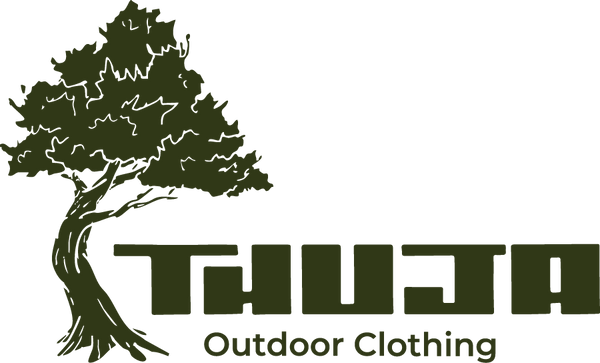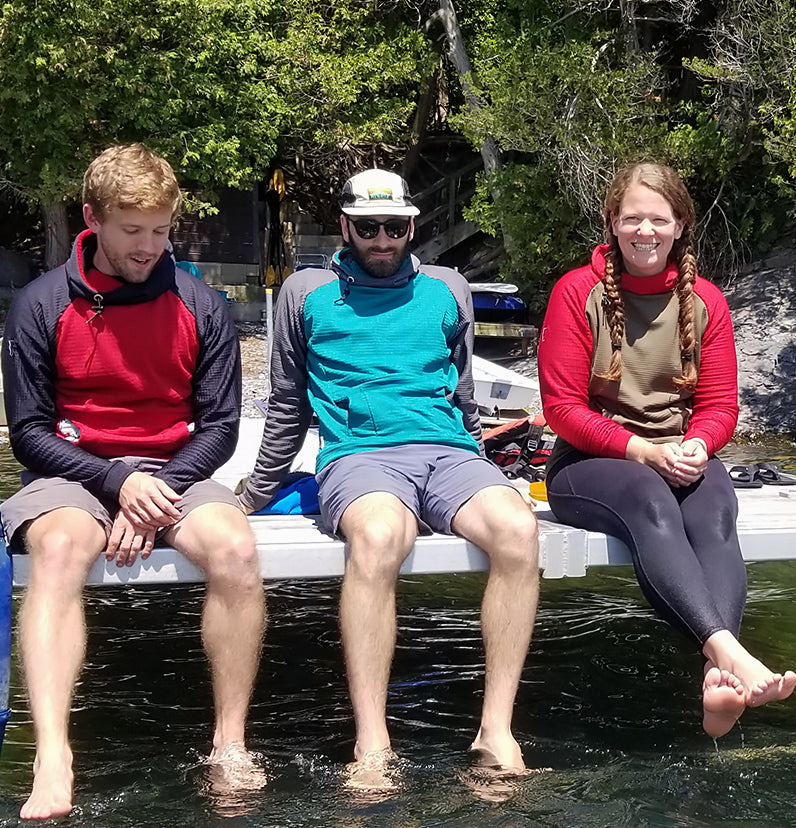
The Thuja Story
It started in 2018 when founder Henry Sengle began trying to make himself the perfect midlayer for outdoor adventures in Vermont. Months of meandering trial and error led to the design of our Burrow Hoodie. It wasn’t designed as a product to be sold, but the unique blend of style and functionality immediately sparked the interest of other outdoor enthusiasts. Orders began piling up and the casual side project started growing into a company. In 2021, Jake Sienkiewycz and Kimberly Piscadlo agreed to help out for a few weeks. Kim, Jake and Henry clicked and a collective vision of the future of Thuja started taking shape. Kim and Jake stayed on, becoming part owners.
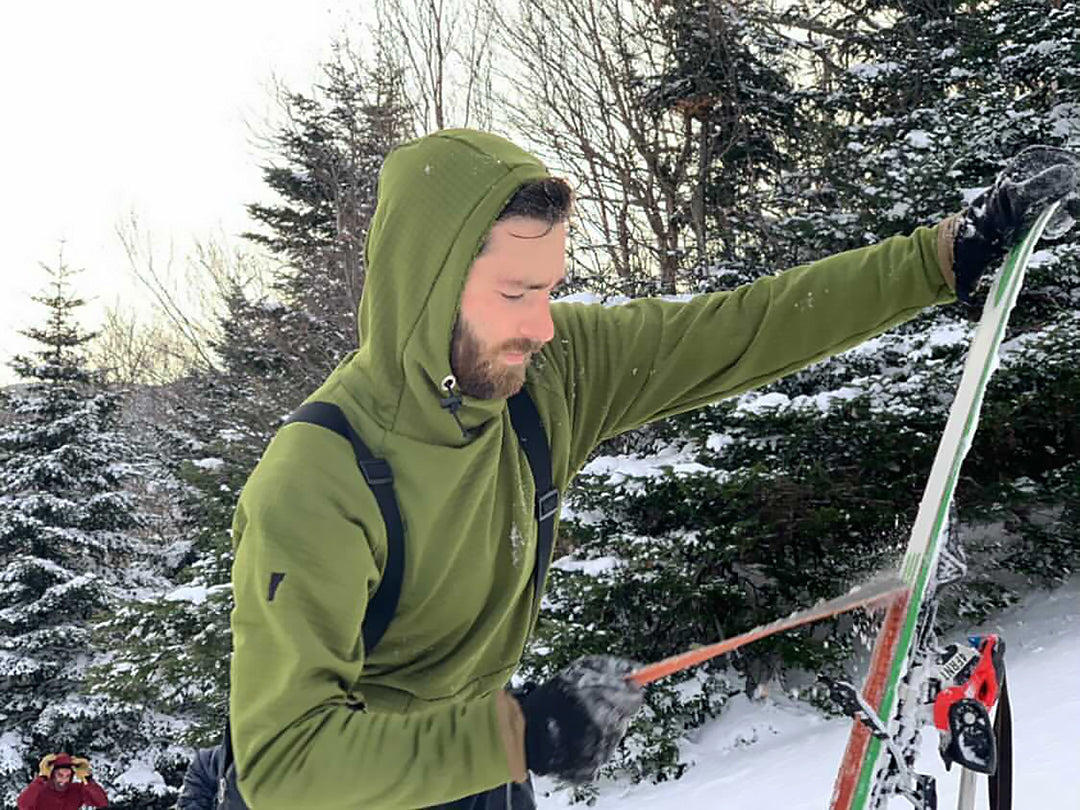
The company was built with the mindset that the gear we bring into the backcountry, on which we rely, and forge a connection, does not need to be made in a factory on the other side of the world. We would rather wear something that was made custom in Vermont by like-minded people than something that was mass produced abroad in questionable working conditions, with minimal environmental oversight, then shipped halfway around the world, distributed across the country, and sold to thousands of people. When we make something, we want to be on top of a mountain testing it on the same day.
We think of it a little like cooking. Yes, the store bought cake tastes pretty good, but the cake that your grandmother bakes is made with love and care and will always be better.
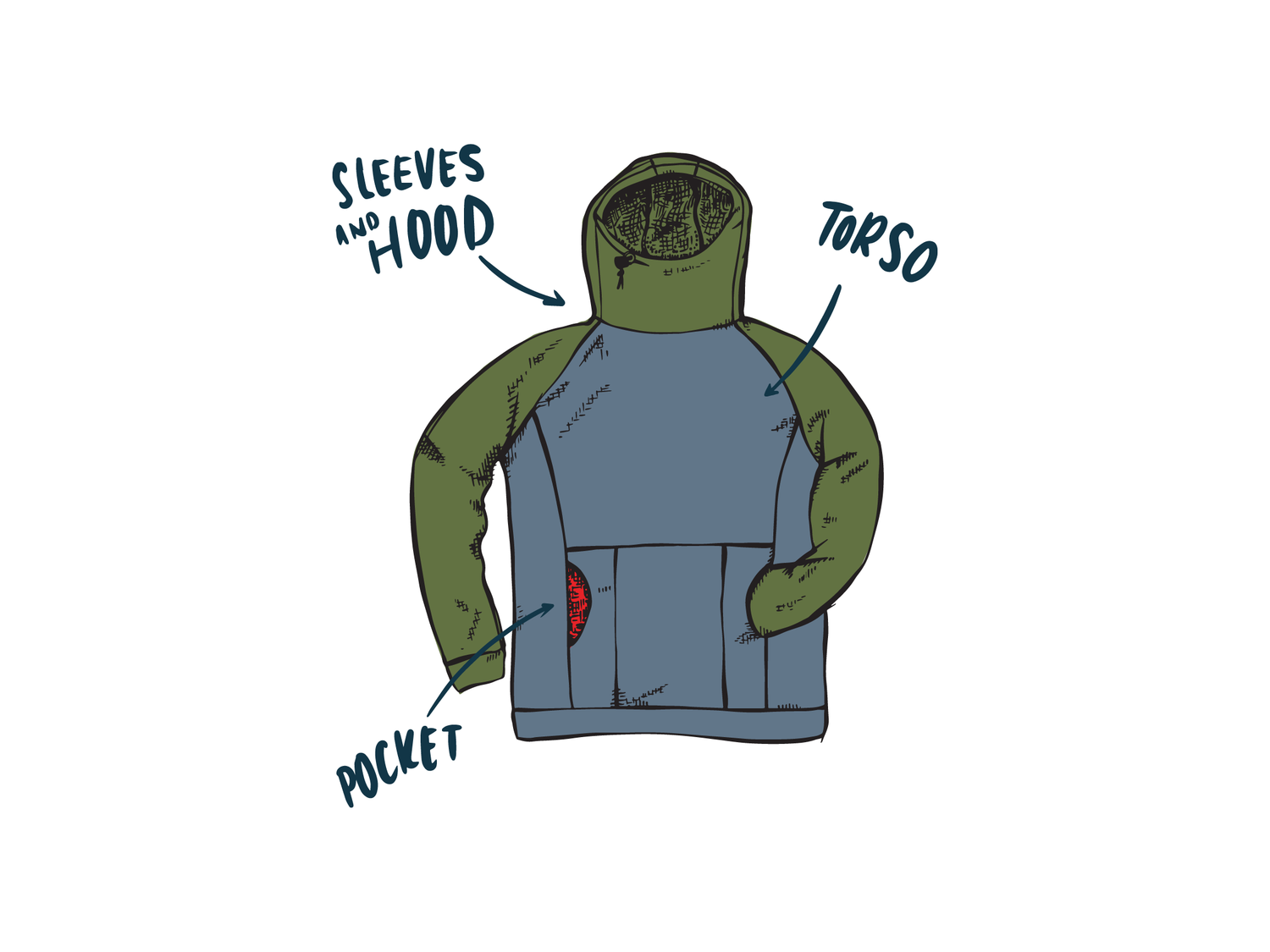
Custom
Each one of our Custom Burrow Hoodies is unique. As of today (9/12/23), we have 9 body colors to choose from. With the ability to mix and match torso and sleeves, that makes 81 color combinations (9x9). The exposed pocket is what really makes your hoodie unique. We design these pockets in house and cycle new patterns every couple of months. We have 23 colors and patterns available for the pocket. That makes a total of 1,863 possible combinations (81x23). So, when you build a Custom Burrow Hoodie, there is a good chance that it will be absolutely one of a kind.
When we run out of a fabric, it is usually gone forever.
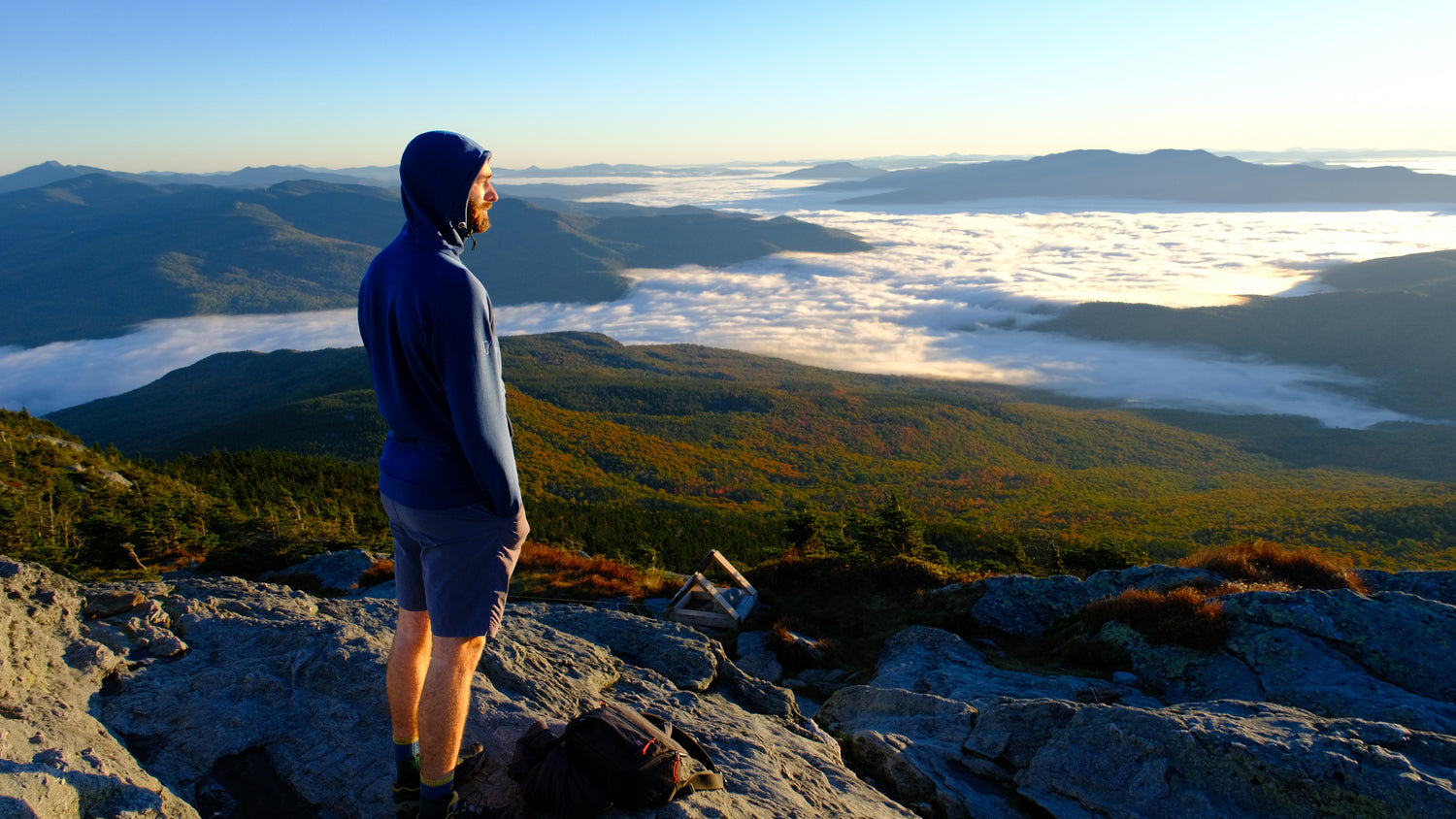
Mission
Our mission is to create quality products that encourage connection with nature and foster positive ecological practices.
We are a Vermont company whose values are intertwined with the unique culture of our state. Vermont is special. There are people here on every inch of the ideological spectrum, but everyone is united by a deep connection to the land and a shared commitment to the common good.
Living in this state, we are seeing first hand the effects of climate change and ecological disturbance. Burlington, Vermont, has seen more winter warming in the last 50 years than any other place in America, according to an analysis by Climate Central, an independent research organization. In roughly the same timeframe, we have watched disease, fungi, and parasites decimate many species of native trees, most notably Beach, Elm, Ash, and Chestnut.
In 2023, catastrophic flooding ravaged our state and left people with real uncertainty about our environmental future. When the issues are global, it’s easy to be jaded, but instead Vermonters put their head down and do everything in their power to build a positive future.
These problems are not unique to Vermont. We are a microcosm of what communities around the country and the world are seeing.
Counteracting these forces is a significant motivation for Thuja.
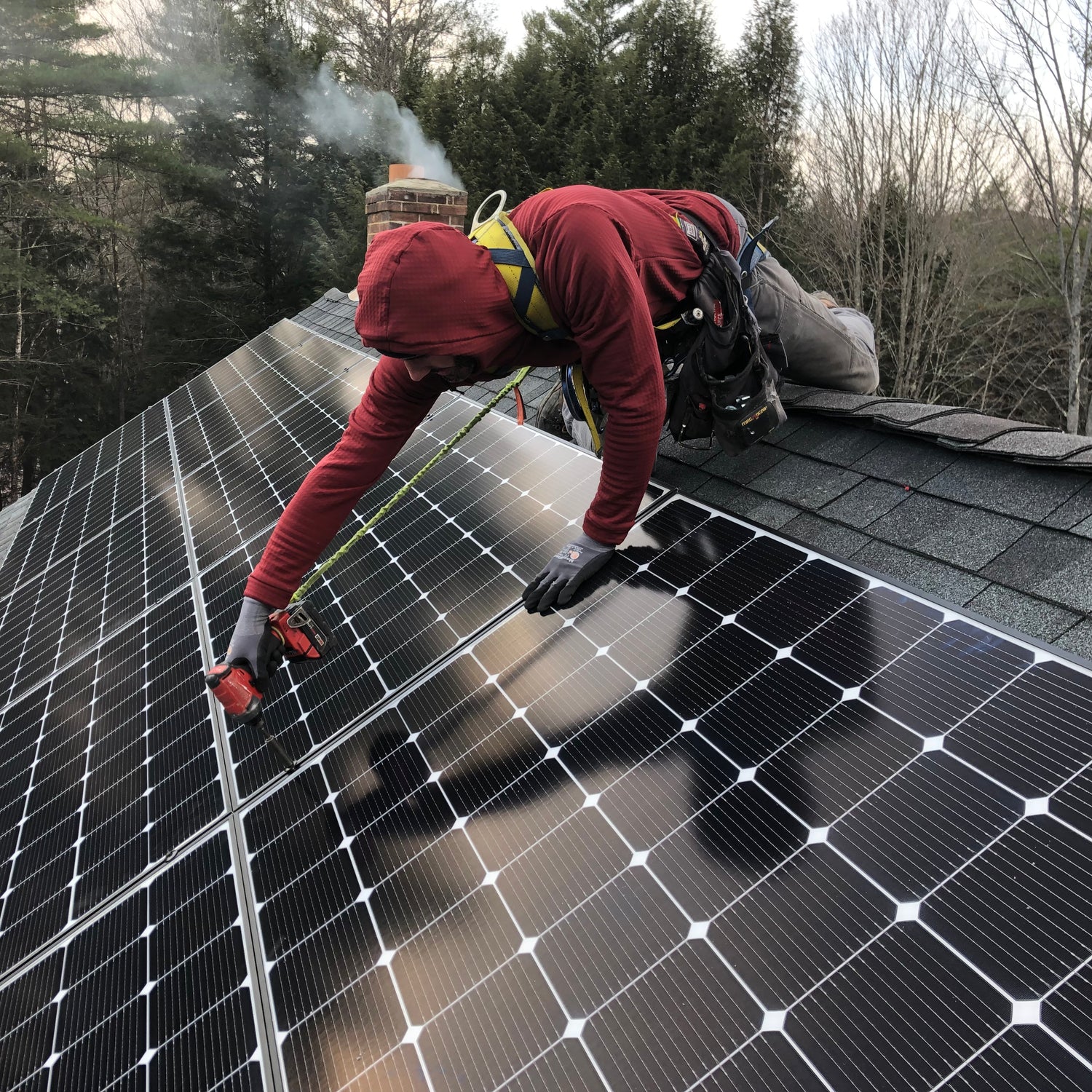
Sustainability
The fashion and clothing industry is not a clean one.
10% of humanity's carbon emissions come from this industry, while 85% of all textiles go to the dump each year. What’s more, overseas manufacturers often dump their industrial byproduct freely, decimating local ecosystems. There is a lot of waste that comes along with any industrial production; in clothing manufacturing the main byproduct is scrap fabric. Unfortunately, there is almost no incentive to reuse this material. Shipping it to a facility that can recycle is expensive and, because of the emissions from transit, The environmental purpose is often defeated. It is essentially free to throw scraps away and that’s what most textile manufacturers do. This incentive structure is a market failure.
We do not throw away our scraps. We save all of our fabric waste.
We make things with it and use it as fill. We also donate our scraps to be used as insulation, dog bed fill, art supplies, and countless other purposes.
For a multinational clothing company, the obligation is to the bottom line and it's cheaper to have things made in a country with loose environmental regulation. When the factory cuts corners and acts irresponsibly, the clothing company can plead ignorance or turn a blind eye.
There are tremendous benefits to our globalized economy, but there are also countless market failures that wreak havoc on our natural world. Nature is viewed as an externality and largely ignored in traditional economic models. We, Thuja, are supplying a product that is sustainably produced, largely from recycled materials and gambling on consumers to share our values.
Our economy works in such a way that government regulations rarely fix our problems quickly and at best can only nudge things in the right directions. The one thing that can dictate change is consumer decision making. If nature is treated as an externality by large institutions, then individual people must treat it as a priority and spend their money accordingly.
